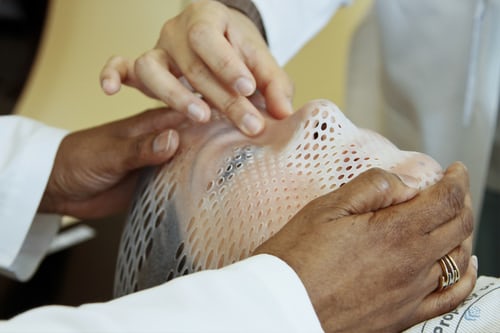Speech And Language Therapy - Speech, Voice and Swallowing
Cancer of the headand neck and its treatment may affect the ability to eat, drink and swallow.
The presence of a tumour or surgery to remove a tumour, will lead to changes in anatomy that may affect the ability to swallow. A swallowing difficulty is also known as dysphagia.
There are many side effects to radiotherapy and chemotherapy. These may lead to difficulties in swallowing, such as a dry mouth, the production of excessive mucus in the mouth and throat and changes in taste.
Surgery and treatment may also lead to changes in speech or the sound of a voice.
It is the role of the Speech and Language Therapist to assess swallowing and communication and make recommendations to help with eating, drinking and communicating effectively. This may be before surgery or treatment, during treatment or during rehabilitation. These may include:
- therapy exercises targeting the muscles of swallowing, speech or the voice
- adapting the textures of food and drink
- further assessment using specialist equipment
- adapting ways of eating, drinking and communicating
The following links provide further information relating to head and neck cancer and its treatment.
Please note: the advice of a Speech and Language Therapist should also be sought to ensure any therapy exercises are appropriate for each individual.

Swallowing difficulties during radiotherapy (leaflet)
How to look after your voice during head and neck treatment (leaflet)
Jaw stretch against resistance (leaflet)
Difficulty opening the mouth - Trismus (leaflet)
Effects of radiotherapy or chemo radiotherapy on swallowing (video)
Swallow exercises demonstration (video)








